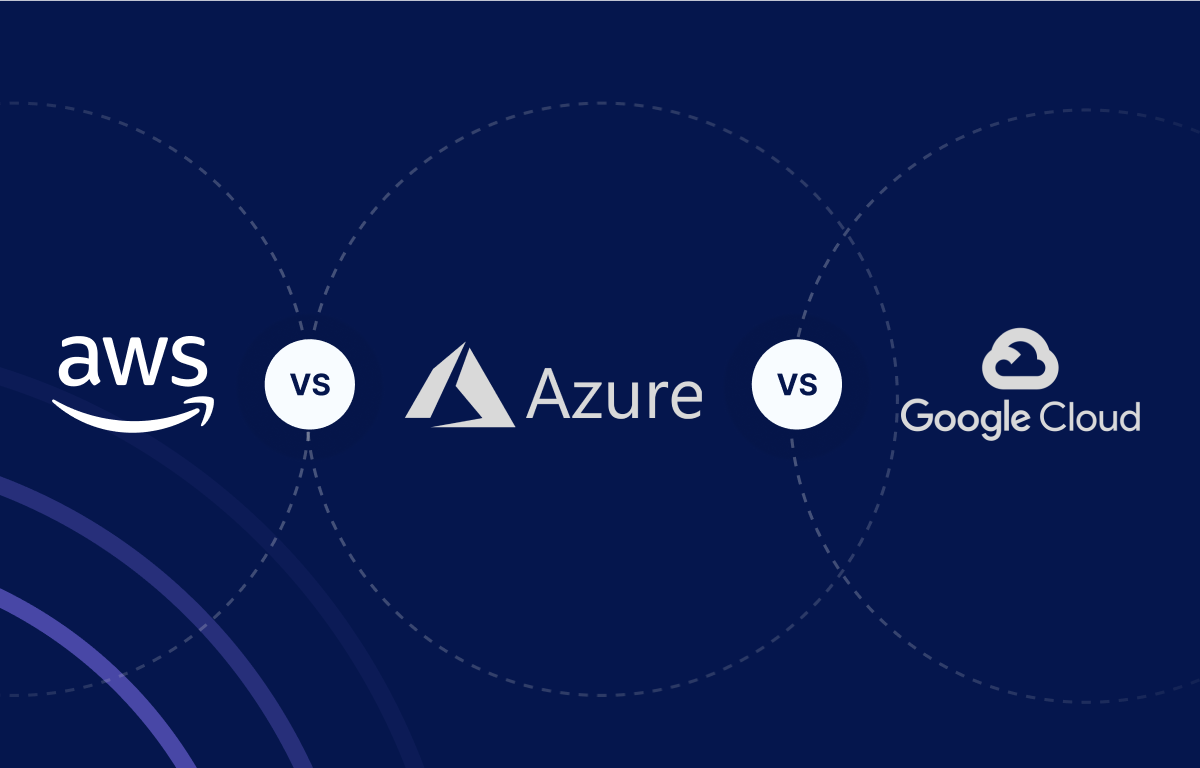Do you know?
JavaScript is the most popular programming languages today, widely used and appreciated by developers.
Interestingly, instead of starting from scratch, developers now prefer to use popular JavaScript frameworks.
These top frameworks provide access to the latest software trends and powerful tools, making JavaScript development easier for various mobile and web applications.
Are you interested in learning about the most popular and best JavaScript frameworks? Let’s explore them step by step.
Before we dive into the details of the most popular JavaScript frameworks, let’s look at some impressive statistics.
After all, who doesn’t enjoy interesting numbers? For instance, do you know how many websites exist in the world right now? Take a guess.
It’s 1,900,455,520 (1.90 billion and counting). Amazing, right?
If you check the website where we got this data, you’ll see the numbers increase every second.
Now, here’s another impressive fact. Out of all those websites, can you guess how many use JavaScript? Think about it!
It’s over 97%. To be exact, 98.9% of websites use JavaScript.
This blog post focuses on JavaScript and the top JavaScript frameworks. We’ll explore some of the best framework lists. But first, let’s start with some basics to get warmed up.
Let’s begin with the simplest question: What are JavaScript frameworks?
What Exactly is a JavaScript Framework?
A JavaScript framework is a set of ready-made JavaScript code libraries. Certified web developers can save time by using these pre-written codes in their programming.
When you hire JavaScript developers, they create powerful web applications even without JavaScript frameworks. However, using frameworks offers advantages like templates that manage fundamental programming patterns, which can be incredibly helpful.
When you start developing an application with frameworks, you can skip writing the same code for features repeatedly. Instead, you can use features from the framework libraries and keep moving forward.
Optimize your web applications with ValueCoders' expert developers for enhanced performance.
JavaScript is widely recognized as a popular language for both backend and frontend web development.
By using top JavaScript frameworks, developers gain a head start with numerous ready-made modules and features essential for building smooth JavaScript applications.
JavaScript has become indispensable for building dynamic websites and web-based applications.
While JavaScript lays the foundation, popular JavaScript frameworks provide all the necessary tools and enhancements for creating visually appealing and functional interfaces.
Also Read: Java Vs JavaScript: Which Is A Better Choice?
Top JavaScript Frameworks for 2024
In 2024, the best Javascript frameworks continue to evolve, offering developers powerful tools and features to streamline web development.
Let’s explore the top JavaScript frameworks that are shaping the future of web development in 2024.
1. React.js
React.js is a widely-used JavaScript library developed by Facebook for building user interfaces. Its simplicity, performance, and flexibility have gained immense popularity.
Hire React JS developers to employ a component-based architecture, where UIs are composed of small, reusable components that encapsulate their own state and behavior.
This approach promotes code reusability, modularity, and easier maintenance, making it ideal for large-scale applications. Partnering with a React.JS development company can benefit in exploring the features to its best.
Key Features:
- Component-Based Architecture
- Virtual DOM
- Declarative Syntax
- JSX
- Unidirectional Data Flow
- React Hooks
- Vibrant Community and Ecosystem
Pros:
- Reusable Components
- Efficient Rendering
- Simplified UI Development
- Strong Performance
- JSX Enhances Readability
- Large Ecosystem of Libraries
- Backed by Facebook
- Active Community Support
Cons:
- Steep Learning Curve
- Boilerplate Code
- Fragmented Community
- Limited SEO Support
- Tooling Complexities
- Frequent Updates
- Can Lead to Over-Engineering
- Verbose Component Structure
2. TezJS
TezJS is a modern and one of the most popular JavaScript frameworks designed for building high-performance web applications.
It focuses on delivering a streamlined development experience with an emphasis on speed, efficiency, and ease of use.
TezJS leverages cutting-edge technologies to provide a robust platform for developers to create scalable and maintainable applications.
Key Features:
- Lightweight Framework
- Fast Performance
- Modular Architecture
- Seamless Integration with Popular Tools
- Comprehensive Documentation
- Built-In State Management
TezJS Pros:
- High Speed and Performance
- Easy to Learn and Use
- Supports Modular Development
- Strong Community Support
- Well-Documented
TezJS Cons:
- Limited Third-Party Plugins
- Smaller Community Compared to Major Frameworks
- Rapidly Evolving, Potentially Leading to Breaking Changes
- May Lack Advanced Features Found in Larger Frameworks
- Less Established in the Industry
3. Vue.js
Vue.js is an advanced JavaScript framework used for building user interfaces and single-page applications. Created by Evan You, Vue.js is known for its ease of integration, simplicity, and flexibility.
When you hire Vuejs developers, it allows them to incrementally adopt its features, making it ideal for both small projects and large-scale applications.
Key Features:
- Reactive Data Binding
- Component-Based Architecture
- Virtual DOM
- Single-File Components
- Vue CLI
- Extensive Documentation and Community Support
Vue.js Pros:
- Easy to Learn and Use
- Flexible and Modular
- Excellent Documentation
- Strong Community Support
- High Performance
Vue.js Cons:
- Smaller Ecosystem Compared to React
- Less Corporate Backing
- Potential for Over-Flexibility
- Limited Plugin Options
- Steeper Learning Curve for Advanced Features
4. Aurelia.js
Aurelia.js is a modern JavaScript framework for building robust web applications. It is designed with a focus on simplicity, convention over configuration, and seamless integration. Aurelia.js leverages a powerful data-binding engine and a modular architecture, making it suitable for developing scalable and maintainable applications.
Key Features:
- Two-Way Data Binding
- Modular and Extensible
- Convention over Configuration
- Strong Templating Engine
- Dependency Injection
- Comprehensive Documentation
Aurelia.js Pros:
- Clean and Modular Code
- Strong Conventions
- Powerful Data Binding
- Easy to Extend and Integrate
- Well-Structured Documentation
Aurelia.js Cons:
- Smaller Community
- Limited Ecosystem
- Less Corporate Support
- Steeper Learning Curve for Beginners
- Slower Adoption Rate
Partner with ValueCoders to stay ahead of the competition with the latest trends.
5. Meteor.js
Meteor.js is the best Javascript framework in the full stack and is designed for building real-time web applications. It offers an integrated solution, encompassing the client and server sides, as well as the database.
Meteor.js simplifies the development process with its seamless data synchronization and extensive libraries and tools.
Key Features:
- Full-Stack Framework
- Real-Time Data Synchronization
- Integrated Build Tool
- Extensive Package Ecosystem
- Isomorphic JavaScript Code
- Hot Code Reload
Meteor.js Pros:
- Simplified Full-Stack Development
- Real-Time Updates
- Extensive Package Library
- Easy to Get Started
- Strong Community Support
Meteor.js Cons:
- Limited Flexibility
- Performance Issues with Large Applications
- Dependency on Specific Tools
- Smaller Ecosystem Compared to Other Frameworks
- Slower Adaptation of Newer Technologies
Also Read: 10 Most Popular JavaScript Frameworks List
6. Polymer.js
Polymer.js is an open-source JavaScript library developed by Google for building web applications that utilize web components.
It allows developers to build custom reusable HTML elements, extending the HTML vocabulary for web applications.
Polymer.js simplifies the development of complex Javascript web app frameworks by promoting encapsulation and reusability.
Key Features:
- Web Components
- Custom Elements
- Shadow DOM
- Data Binding
- Polymer CLI
- Extensive Documentation
Polymer.js Pros:
- Promotes Code Reusability
- Strong Encapsulation
- Easy to Create Custom Elements
- Backed by Google
- Excellent Documentation
Polymer.js Cons:
- Smaller Community
- Limited Ecosystem
- Steep Learning Curve for Beginners
- Performance Overhead with Shadow DOM
- Less Adoption Compared to Major Frameworks
7. Backbone.js
Backbone.js is a lightweight JavaScript framework that gives architecture to web applications by offering models with key-value binding and custom events.
It is designed to assist developers build single-page applications by offering a minimalistic and flexible approach.
Backbone.js emphasizes simplicity and encourages using JavaScript libraries for different parts of the development process.
Key Features:
- Models with Key-Value Binding
- Custom Events
- RESTful JSON Interface
- Routers for URL Management
- Synchronization with Backend
- Lightweight and Flexible
Backbone.js Pros:
- Lightweight Framework
- Flexibility in Design
- Simplifies Data Management
- Easy Integration with Other Libraries
- Extensive Documentation
Backbone.js Cons:
- Lack of Structure for Large Applications
- Requires Additional Libraries for Complex Features
- Steeper Learning Curve for Beginners
- Less Opinionated, Leading to Diverse Practices
- Smaller Community and Ecosystem
8. Angular.js
Angular.js, developed by Google, is a comprehensive JavaScript framework for building dynamic web applications.
When you hire Angular JS developers, they can assist in extending HTML with additional attributes and binding data to HTML with expressive, declarative syntax.
Angular.js is well-suited for developing single-page applications with its robust set of tools and features. Partner with an AngularJS development company, such as ValueCoders to utlize the benefits of this JavaScript framework.
Key Features:
- Two-Way Data Binding
- Dependency Injection
- Directives
- MVC Architecture
- Testing Support
- Comprehensive Documentation
Angular.js Pros:
- Powerful Two-Way Data Binding
- Modular Architecture
- Strong Community and Support
- Extensive Built-In Tools
- Facilitates Testable Code
Angular.js Cons:
- Steep Learning Curve
- Performance Issues with Complex Applications
- Verbose and Complex Codebase
- Frequent Major Updates
- Can Be Overkill for Small Projects
Empower your business with cutting-edge solutions from ValueCoders.
9. Ember.js
Ember.js is a strong, open-source framework for building single-page applications with a desktop-like experience using JavaScript and HTML5.
It utilizes Handlebars to create dynamic HTML templates and relies on the MVC framework and jQuery libraries to achieve this.
Ember.js is a leading JavaScript framework, ideal for projects needing a web app with a desktop-style interface and feel.
It’s particularly suitable for single-page websites where all actions happen on one page. Compared to other JavaScript frameworks, Ember.js performs very well.
Key Features:
- Reusable and Maintainable JavaScript Web Apps
- Convention over Configuration
- Ember CLI
- Two-Way Data Binding
- Router for URL Management
- Handlebars Templating
- Extensive Documentation and Community Support
Ember.js Pros:
- Strong Conventions and Best Practices
- Powerful Command Line Tools (Ember CLI)
- Efficient Data Binding
- Well-Suited for Large Applications
- Active Community and Robust Documentation
Ember.js Cons:
- Steep Learning Curve
- Heavy Framework
- Slower Performance on Small Projects
- Limited Flexibility Due to Strong Conventions
- Less Popular, Smaller Ecosystem Compared to Major Frameworks
10. Svelte
Svelte is a framework that helps build web pages quickly and efficiently. It’s lightweight and uses minimal code, making it ideal for fast and responsive applications, especially those that handle a lot of data or need to work well on many devices.
Unlike Vue and React, which do most of their work in the browser, Svelte does its work while you’re building the app.
According to Svelte’s documentation, it’s a component framework. But what sets Svelte apart is that it’s primarily a compiler before it’s a UI framework.
This unique approach has made it one of the most popular JavaScript frameworks.
Key Features:
- Compile-Time Optimizations
- No Virtual DOM
- Reactive Programming
- Scoped Styles
- Simple State Management
- Minimal Boilerplate
Svelte Pros:
- High Performance
- Smaller Bundle Sizes
- Easy to Learn and Use
- Clear and Concise Syntax
- Minimal Boilerplate Code
Svelte Cons:
- Smaller Community
- Less Mature Ecosystem
- Limited Third-Party Integrations
- Steeper Learning Curve for Advanced Features
- Rapidly Evolving, Potentially Leading to Breaking Changes
Also Read: The Future Of JavaScript: Development Trends And Predictions [Whitepaper/PDF]
Selecting the Right JavaScript Framework
When it comes to opting the best JavaScript framework for your project, there are a few key factors to consider.
First, assess specific project needs and requirements and determine which framework aligns best with those needs. Consider factors like the size, duration, and complexity of your application, the level of community support and documentation available for the framework, and your team’s familiarity and expertise with the technology.
Next, assess the performance and scalability of the framework. Look for benchmarks and case studies to gauge how well the framework performs in real-world scenarios and how easily it can scale as your application grows.
Additionally, consider the ecosystem surrounding the most popular JavaScript frameworks. Is there a robust selection of third-party libraries, plugins, and tools available to enhance your development process?
Does the framework have a vibrant and active community capable of offering support and can contribute to its ongoing development?
Let ValueCoders future-proof your applications for long-term success.
Finally, the long-term viability and sustainability of the framework must be taken into account.
Is it backed by a reputable organization or company? Does it have a roadmap for future development and updates?
By carefully evaluating these factors, you can select the JavaScript framework and that best suits your project’s needs. Additionally by hiring dedicated development team, you are all set for success in your web development endeavors.
Top 4 Java Frameworks That Developers Can’t Live Without
Final Words!
In conclusion, the landscape of JavaScript frameworks in 2024 offers many options for businesses to consider. From React.js and Vue.js to Svelte and Ember.js, each framework comes with its own set of advantages and considerations.
By understanding the needs of your project, evaluating factors like performance, scalability, ecosystem, and long-term viability, you can make an informed decision on which framework best aligns with your business goals.
Remember to stay updated with the recent trends and advancements in the JavaScript ecosystem to ensure that your web development endeavors remain competitive and successful.
Ready to elevate your web development projects with the right JavaScript framework?
Contact ValueCoders today to discuss how our expert developers can help you harness the power of these frameworks and Java web application development services for your business growth.



















